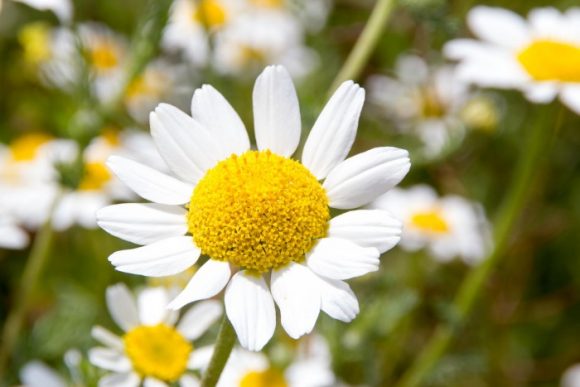All posts tagged bruisewort
Simple, Common but Powerful: Common Daisy Flower Herbal Remedies
Bellis perennis or common daisy, also known as garden daisy, bruisewort, and English daisy is a flowering plant native to western Asia and Europe, but now naturalized in many parts of the globe. It belongs to the aster family, can grow up to 7 inches in height and thrives in moist and nutritious soils. Daisy flowers have both male and female organs but rely on bees to pollinate them. They flower in May up to November and feature a yellow head surrounded by white petals. Continue reading [...]

